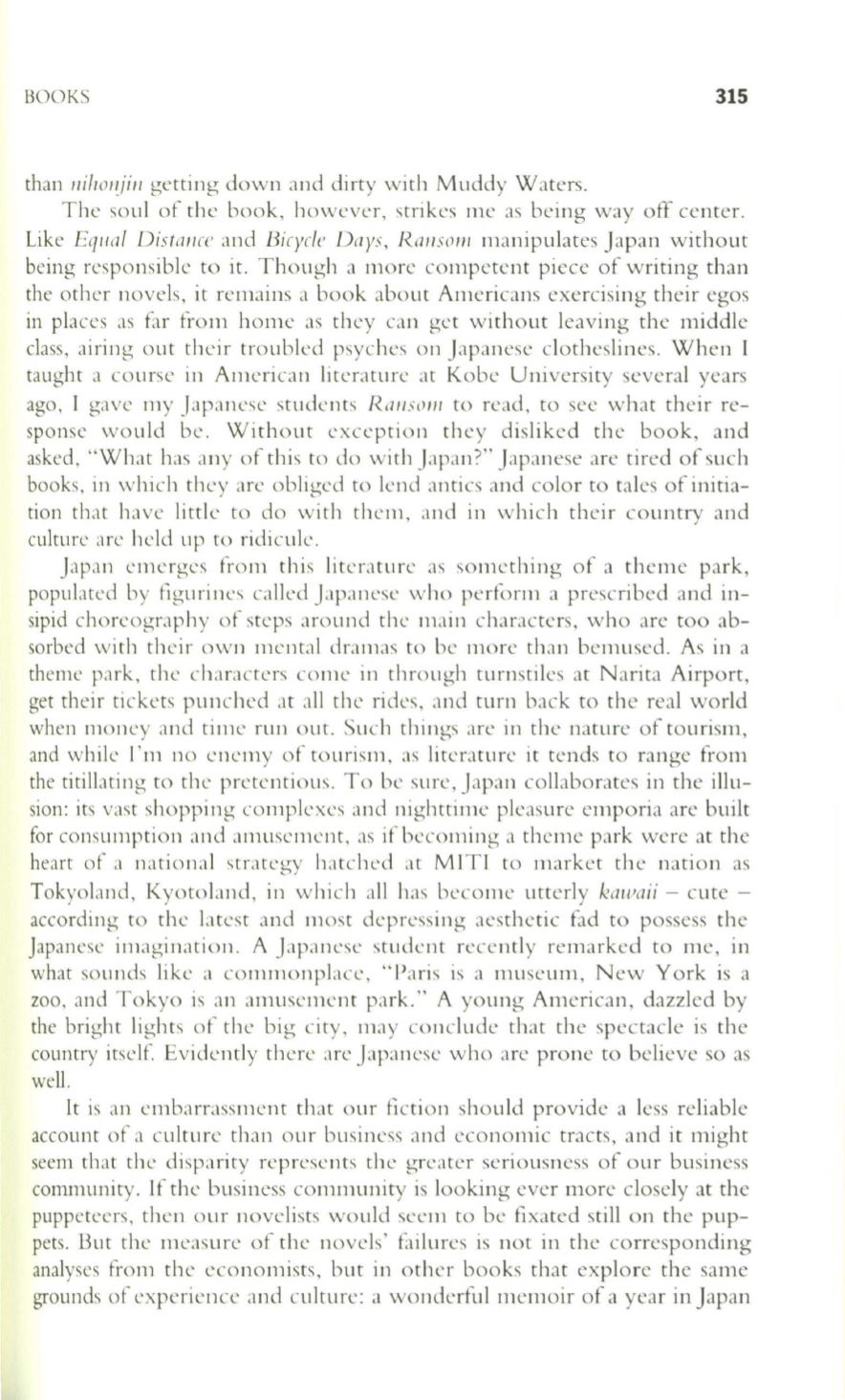
BOOKS
315
than
lIi/IO/!iill
getting down and dirty with Muddy Waters.
The soul of the book, however, strikes me as being way off centcr.
Like
Eqllil/ Oisll1l1((,
and
Bi()'r/e 011),.1,
/(nllsolll
manipulates Japan without
being responsible to it. Though a more competent piece of writing than
the other novels, it remains a book about Americans exercising their egos
in places as f.lr from home as they can get without leaving the middle
class, airing out their troubled psyches on Japanese clotheslines. Whcn I
taught a course in American literature at Kobe University several ycars
ago, I gave my Japanese students
/(011 .10111
to read, to sec what their rc–
sponse would be. Without exception they disliked the book, and
asked, "What has any of this to do with Japan:J" Japanese are tired of such
books, in which they are obliged to lend antics and color to tales of initia–
tion that have little to do with them, and in which their country and
culture 3re held up to ridicule.
Japan emerges from this literature 3S something of a theme park,
popubted by figurines called Japanese who perform a prcscribed and in–
sipid choreography of steps around the main characters, who arc too ab–
sorbed with their own mental dramas to be more than bemused. As in a
theme park, the characters come in through turnstiles at Narita Airport,
get their tickets punched at all the rides, and turn back to thc real world
when money and time run out. Such things are in the nature of tourism,
and while I'm no enemy of tourism, as literature it tends to range from
the titillating to the pretentious. To be sure, Japan collabor3tes in the illu–
sion: its V3St shopping complexes 3nd nighttime pleasure emporia are built
for consumption :lIld amusement, as if becoming a theme park were at the
heart of a national strategy hatched at MITl to market the nation as
Tokyoland , Kyotoland, in which all has become utterly
"nl/lnii
-
cute -
according to the latest and most depressing aesthetic fad to possess the
Japanese imagination. A Japanese student recently remarked to mc, in
what sounds like a commonpbce, "Paris is a museum, Ncw York is a
zoo, and Tokyo is an amusement park." A young American, dazzled by
the bright lights of the big city, may conclude that the spectacle is the
country itself. Evidently there arc Jap:lI1ese who arc prone to believc so as
well.
It is an embarrassment that our fiction should provide a less reliable
account of a culture than our business and economic tracts, and it might
seem that the disparity represents the greater seriousness of our business
community. If the business community is looking cvcr morc closely at thc
puppeteers, then our novelists would seem to be fixated still on the pup–
pets. But the measure of the novels ' failures is not in the corresponding
analyses from the economists, but in other books that explore the same
grounds of experience and culture: a wonderful memoir of a ycar in Japan


